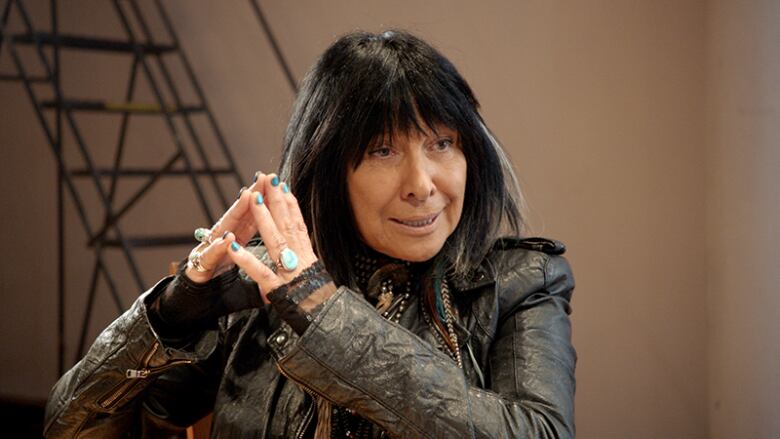First Nations spelling bee film Bee Nation to open Hot Docs fest
Festival organizers note close to 48 per cent of 2017 films are directed by women

Last March, as Toronto photographer Lana Slezic researched ways to help her eight-year-old son spell better, she heard that the first-ever provincewide First Nations Spelling Bee would be held that month, in Saskatchewan.
Just 10 days later, she was on a plane to the province to make a documentary on the inaugural bee and its participants.
"I got shivers all over my body and I thought, 'Wow, this is going to be an amazing story,"' she said.
Slezic was onto something: her film Bee Nation has landed the opening-night slot at the Hot Docs Canadian International Documentary Festival, which runs April 27 to May 7 in Toronto.
"As soon as we saw the film we thought, 'This is a film that will open eyes, open hearts and open minds about some of the issues affecting indigenous communities throughout the country, wrapped in a really positive, heart-warming story about indigenous youth who are just pursuing their goals and whose parents are really supportive,"' said Shane Smith, Hot Docs director of programming.
Bee Nation speaks to two of the themes running through this year's festival: the work of women filmmakers and docs on indigenous subjects.
Nearly half of lineup helmed by women
As Hot Docs unveiled its full 2017 lineup on Tuesday, it noted close to 48 per cent of the films are directed by women.
"I think last year we were around 40 per cent," said Smith.
"Something that we've really focused on at Hot Docs is making sure that we're doing our best to represent the increased diversity in our filmmakers, not only culturally but also gender-wise."

Other Canadian indigenous docs in the lineup include The Road Forward, a musical documentary about developments in the 1930s that led to First Nations activism today. Music also infuses the star-packed Sundance Film Festival hit Rumble: The Indians Who Rocked the World, about Native Americans who shaped popular music. The doc won the World Cinema Documentary Special Jury Award for Masterful Storytelling honour at the influential festival.
The Canadian lineup also includes A Better Man, in which co-director Attiya Khan meets up with her ex-boyfriend who abused her on a daily basis 22 years ago, to see if he's willing to take responsibility for his actions.
In Ann Shin's My Enemy, My Brother, two former enemies from the Iran-Iraq War become friends in Vancouver 25 years later. It's an expansion of her 2015 short documentary that was nominated for an Emmy and shortlisted for an Oscar nomination.
- CBC ARTS PORTAL | Ann Shin's documentary gives a voice to the refugee crisis
"It's a positive film, particularly in light of the Trump travel ban," said Shin.

Smith said "Trump is haunting a lot of documentaries" in the lineup, which has a total of 230 titles from 58 countries.
"The shift in the U.S. is something that really comes through subtly in a lot of the documentaries," he said.
Meanwhile, Syria is featured in eight titles, including Hell on Earth: The Fall of Syria and the Rise of ISIS, 69 Minutes Of 86 Days and A Memory in Khaki.
Bill Nye, Atom Egoyan to attend
Guests expected to attend the festival include famed scientist Bill Nye, who's the subject of the doc Bill Nye: Science Guy.
Oscar-nominated Canadian filmmaker Atom Egoyan will also host an onstage discussion with acclaimed director Joe Berlinger, who will present the international premiere of Intent to Destroy, about the Armenian genocide. The fest will also feature a 25th anniversary screening of his doc Brother's Keeper.
Other notable subjects in the lineup include wrestler Hulk Hogan in Nobody Speak: Trials of the Free Press. In Becoming Bond,� we meet the only man to play the role of James Bond just once, and House of Z profiles fashion designer Zac Posen.
Earlier this month, organizers announced the festival has added a $50,000 Rogers Audience Award for best Canadian feature-length film. Shin said the prize money would mean a lot to filmmakers.
"Frankly, we're in the hole with [My Enemy, My Brother], so there's a prize and it means so much for us filmmakers who do these labours of love to make a living or even just to stay in the black with films like this."